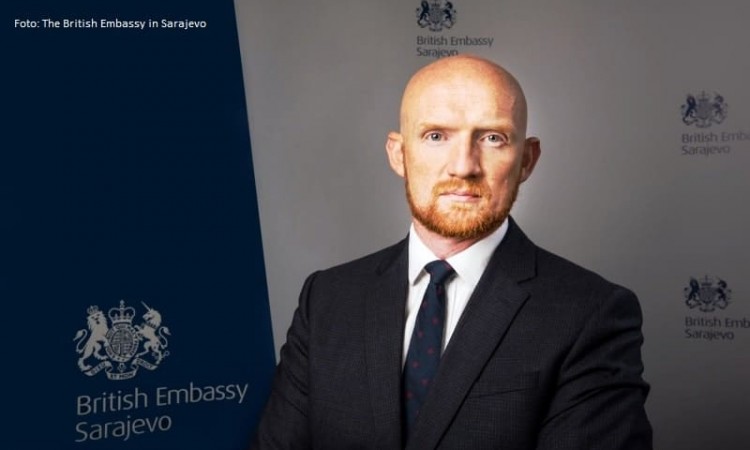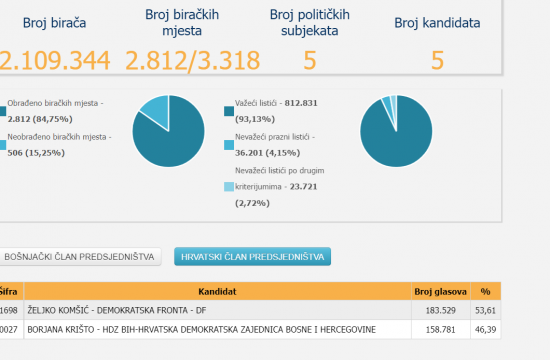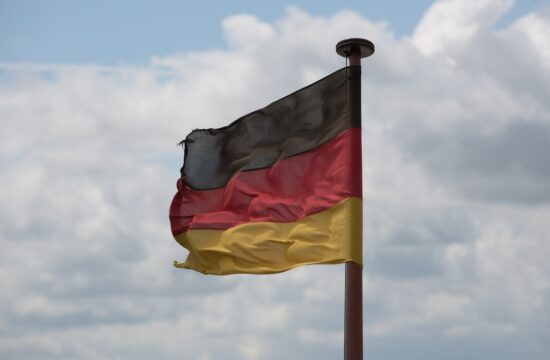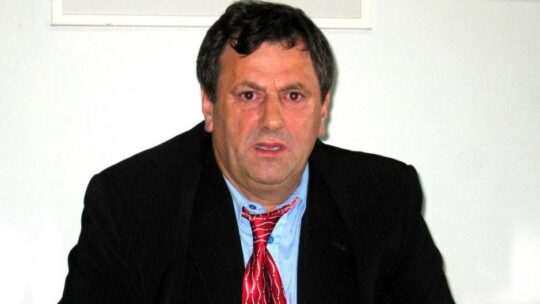
Bosnia and Herzegovina has for far too long been “a consequence-free environment” where individuals can work against the interest of citizens without any negative result for them personally and changing this is “at the heart of creating a new direction for BiH, and breaking the cycle of crisis,” according to the British Ambassador to BiH, Matthew Field.
In his blog, entitled ‘An end to BiH’s consequence-free environment‘, Field wrote that serving as UK Ambassador to Bosnia and Herzegovina “continues to be the most rewarding, challenging, and frustrating experience” in his professional career.
“The challenges and frustrations stem from the near constant turmoil experienced by the country, the destabilising activities and self-interest of many of its leaders, and the failure to improve the quality of life of its citizens,” he wrote.
The ambassador noted that the current political crisis over the initiative of BiH Presidency member Milorad Dodik and the National Assembly of the country’s Republika Srpska (RS) entity to attempt to “reverse the progress of the last 26 years, is a dangerous distraction from corruption.”
“Using hate speech and directly ignoring the legal order of this country, the steps it lays out will devastate the security and prosperity of the RS and other parts of the BiH, robbing people of the brighter future they deserve.”
“I have been reflecting on what links this situation with so many other problems facing citizens, including deep-rooted corruption, poor public services and chronic under-investment, which go much wider than just one politician, party, or government. I have discussed this with many different individuals, from Trebinje to Bihac, Livno to Brcko, and with people who have already left this country in pursuit of a better opportunity elsewhere.”
“What could change the calculations of those who seem determined to secure benefits for themselves and those around, regardless of the cost or risk to others?” he asked.
He concluded that “for far too long BiH has been a consequence-free environment” and that “individuals can choose to steal from public budgets, to block reforms, to praise war criminals, to manipulate elections, to bribe, to deny justice, to threaten, to undermine institutions, and to divide, without any negative result for them personally.”
“Actual consequences for doing the wrong thing are few and far between. So why do the right thing?”
Changing this calculation is, he argued, “at the heart of creating a new direction for BiH, and breaking the cycle of crisis,” adding that this might be “the only chance to encouraging more of the country’s best and brightest to stay and succeed.”
He noted that consequences can be both external and internal.
“Externally, that includes the use of sanctions or other restrictive measures against the individuals leading these steps,” he wrote, adding that his country is already working on this, “though it is complicated and legally demanding.”
“Like other friends of the country, we are also reconsidering all of our assistance programmes, to ensure UK taxpayer money does not reinforce the individuals or institutions working to undermine the legal order of the country. At the same time, we want – and must – protect innocent BiH citizens from any negative impact of these changes. And as significant contributors to the World Bank, IMF, and other international financial institutions, to ensure rigorous conditions apply to any further support: better no arrangements than ones which indirectly reinforce negative agendas in BiH.”
However, he stressed that domestic consequences are just as important.
“Rule of law is most simply defined as no-one being above the law. Those who break the law need to be investigated and prosecuted, without prejudice or favour. BiH’s own judiciary has more than enough material to begin these processes.”
The “strongest domestic sanction comes on Election Day,” he stressed, arguing that this is an opportunity to remove those who are failing to act in the best interests of their voters from their posts.
“Those in power frequently promote the idea that voting does not result in change, confident that patronage networks ensure their own votes, while blocking improvements in the rigour of the voting process. This is why it is so important to see progress in the integrity of the vote – all of which have been detailed in years of OSCE recommendations. It can hardly be a surprise that those in power in the current system do not want to see change.
Citizens of this country have the power to force their politicians to deliver a different vision. We will not allow anyone to prevent the vote going ahead this October,” Field wrote.
“The strength of UK support for BiH and its citizens has been expressed many times in recent months – we cannot and will not allow 26 years of hard-won progress in BiH to be undone. We will shortly receive visits by the UK Parliament’s Foreign Affairs Committee, which is investigating how we can better support the stability and success of BiH, and by the International Development Committee, examining globally how to prevent atrocities. I look forward to the chance to discuss with them, and those from BiH with which they interact, how to end the consequence-free environment in this country,” the ambassador wrote.





Kakvo je tvoje mišljenje o ovome?
Budi prvi koji će ostaviti komentar!